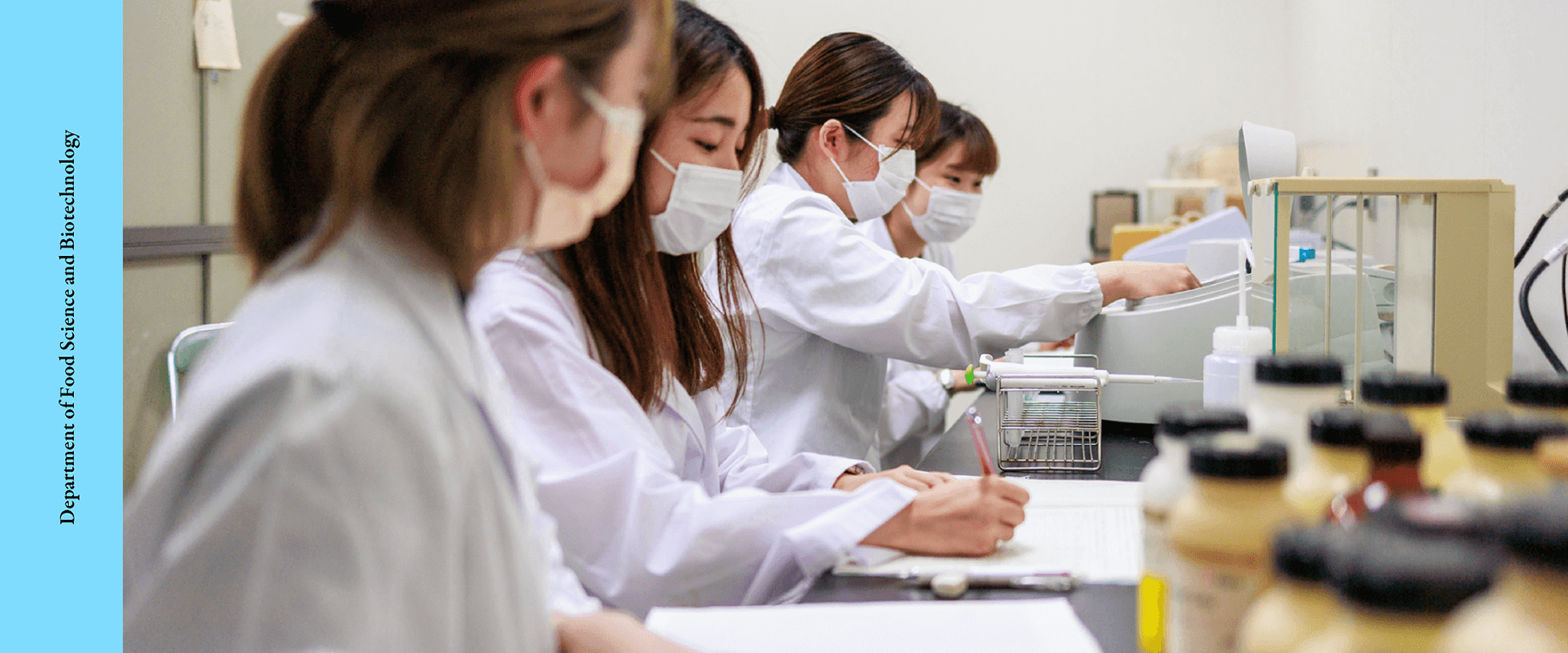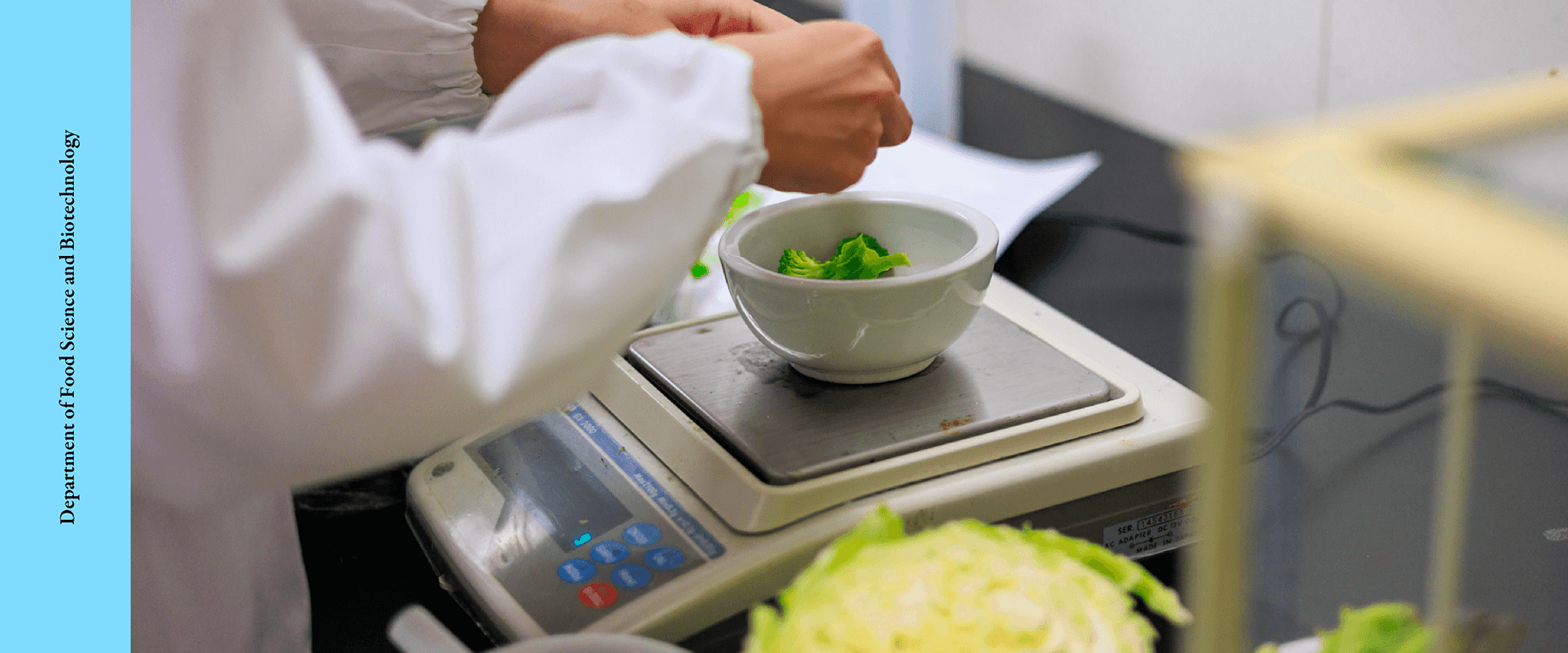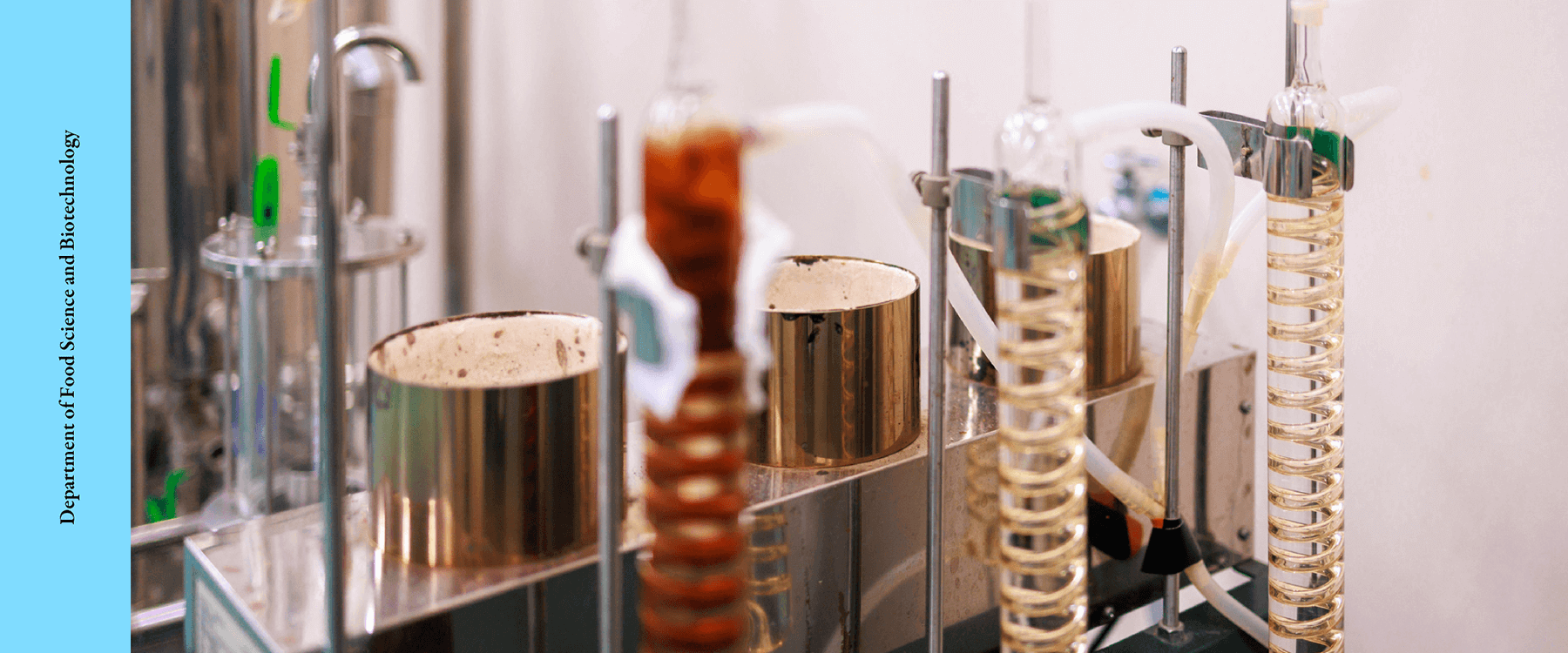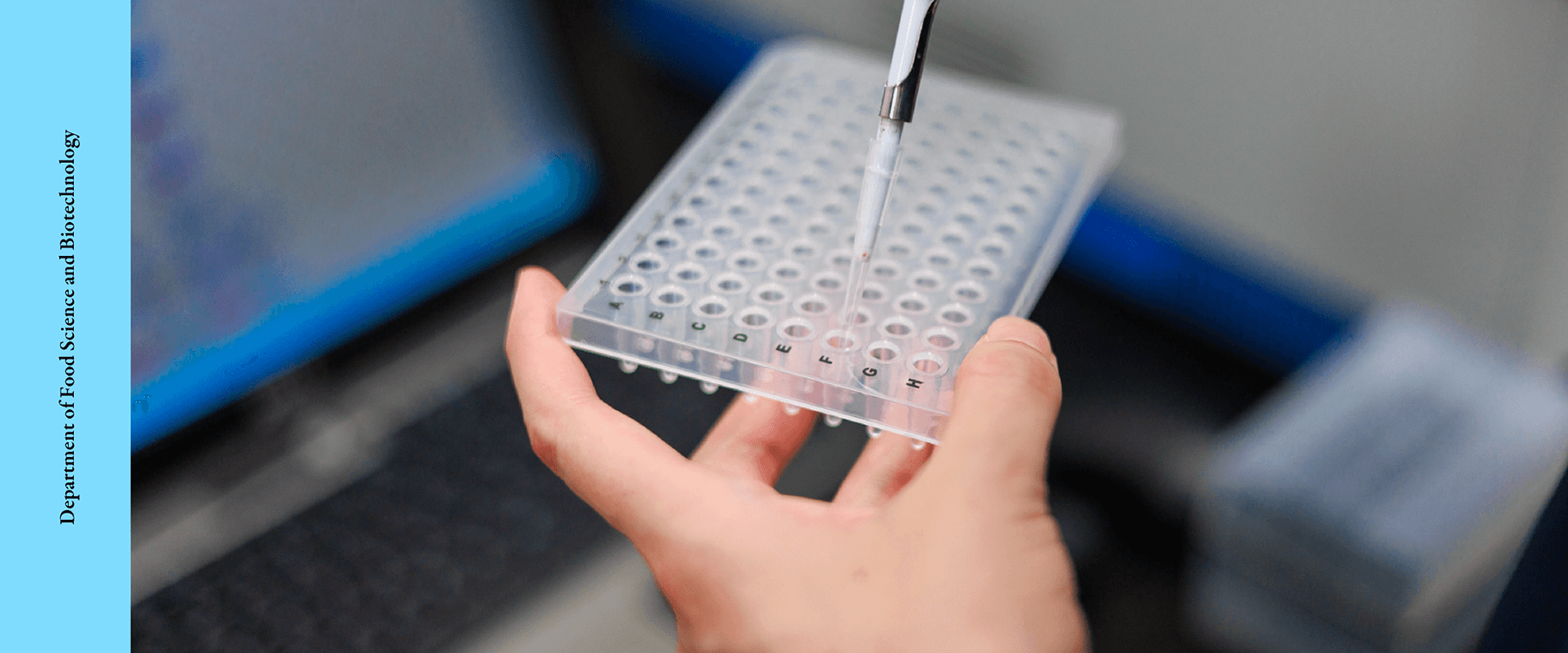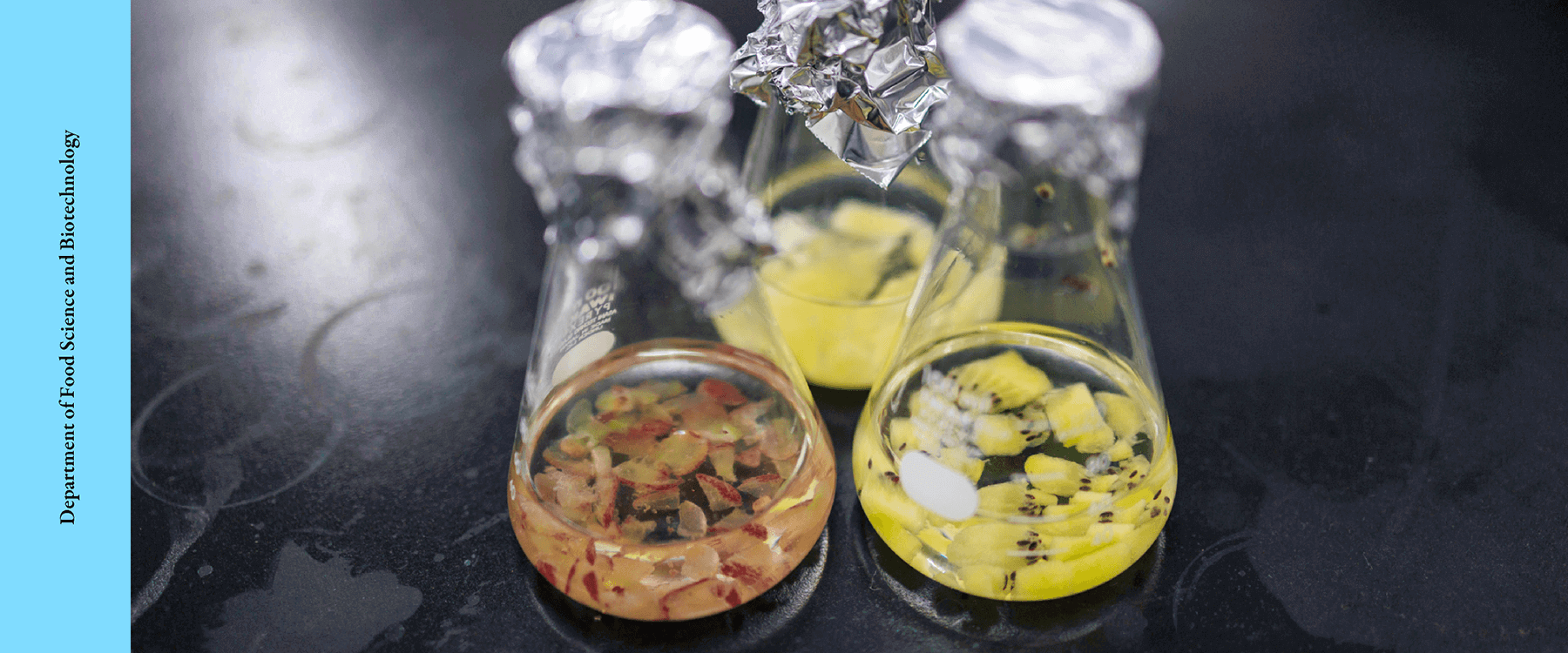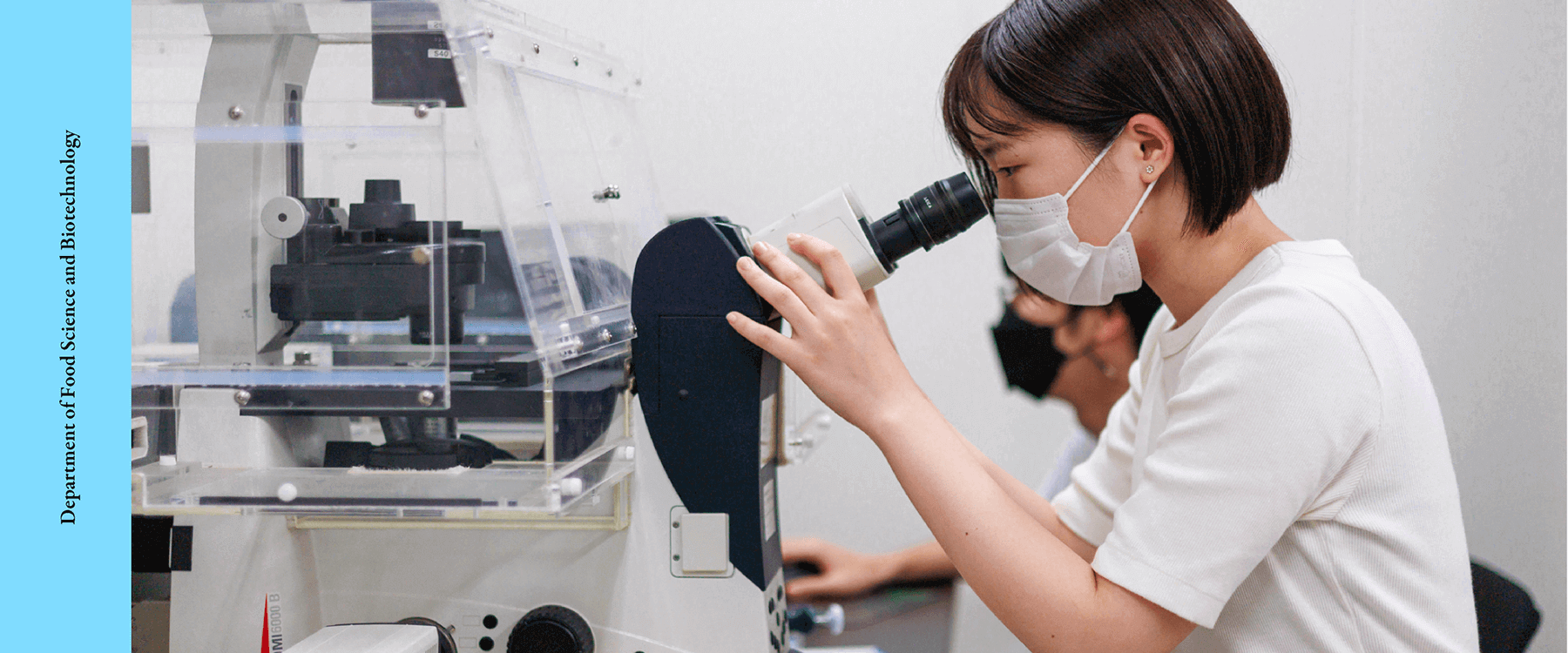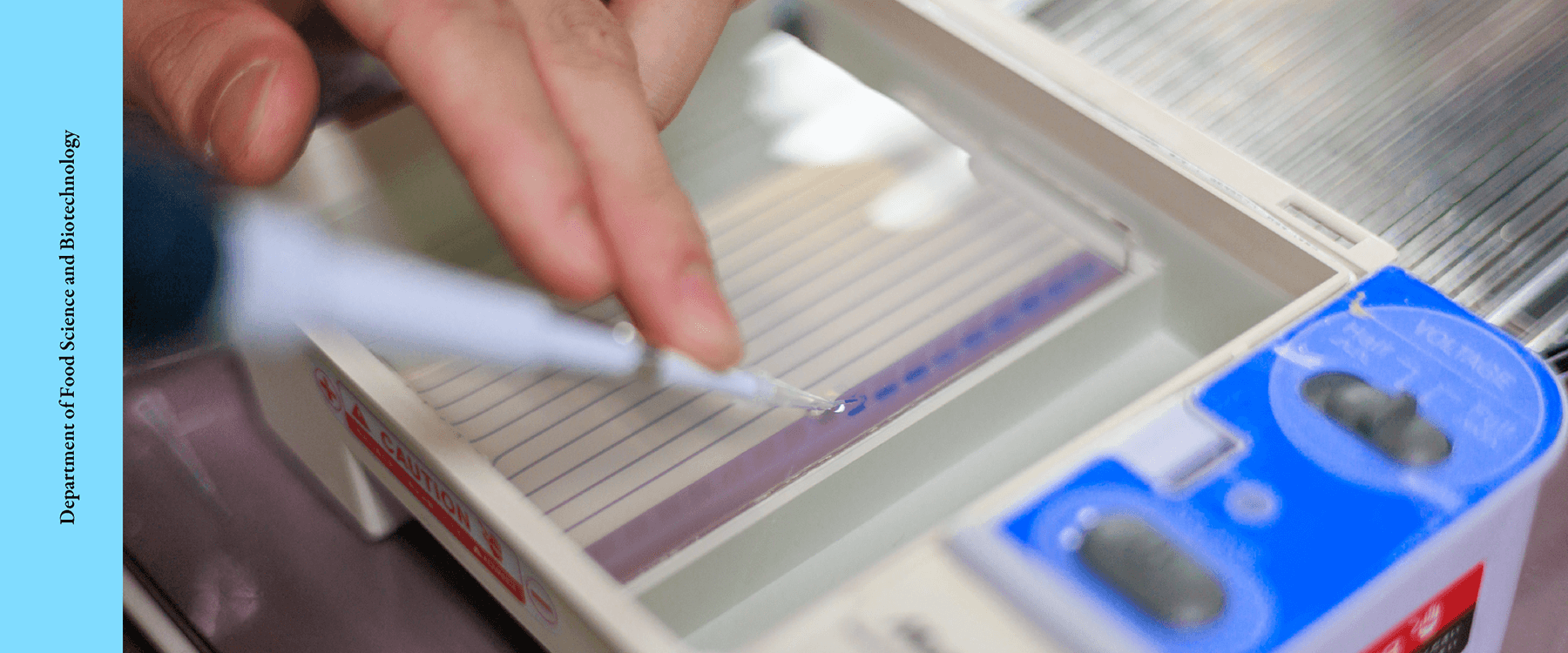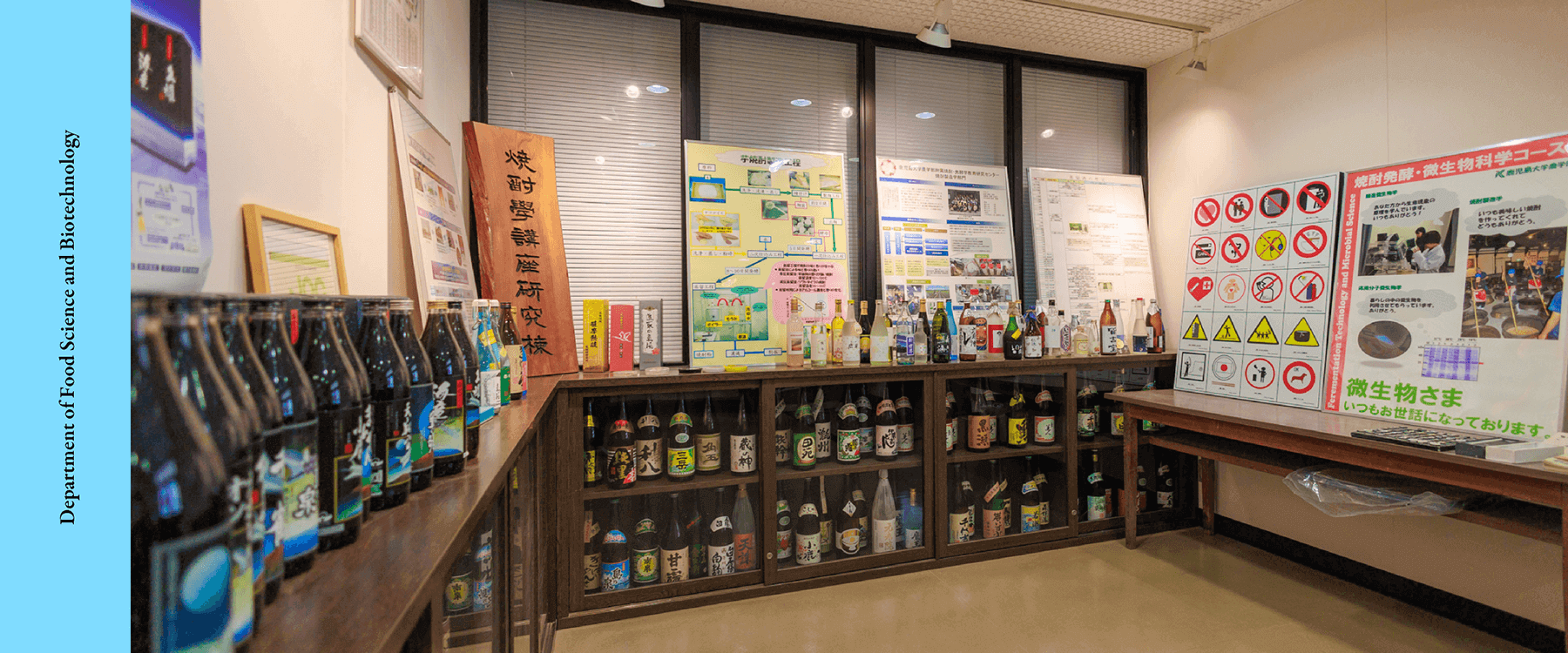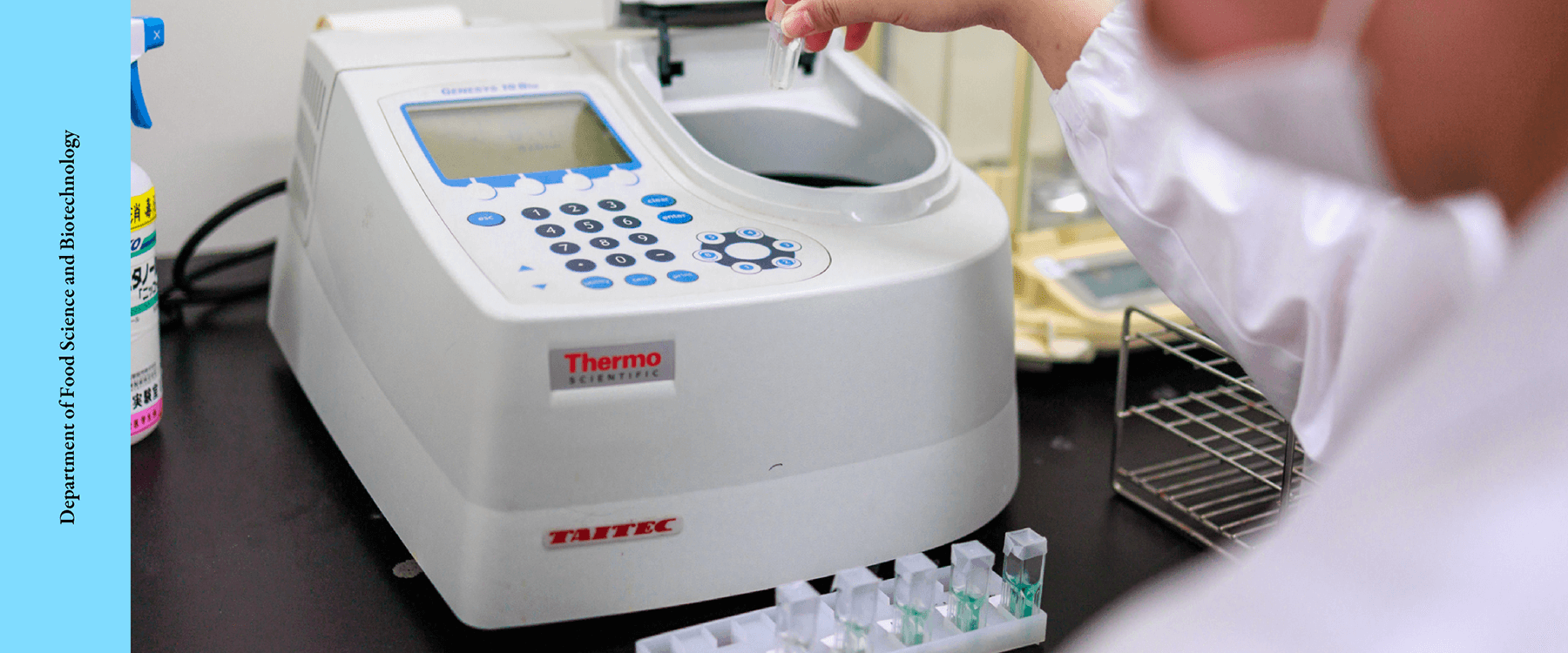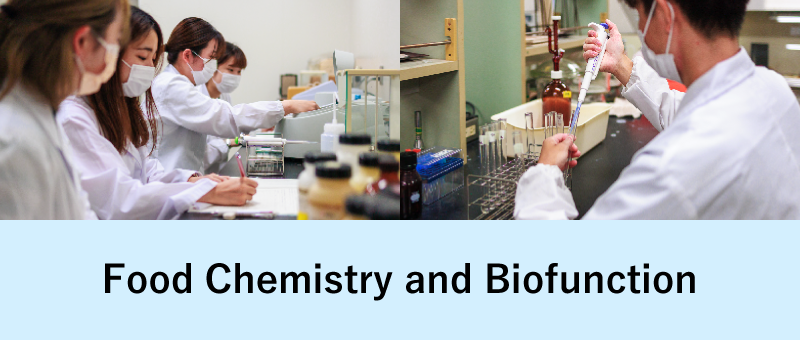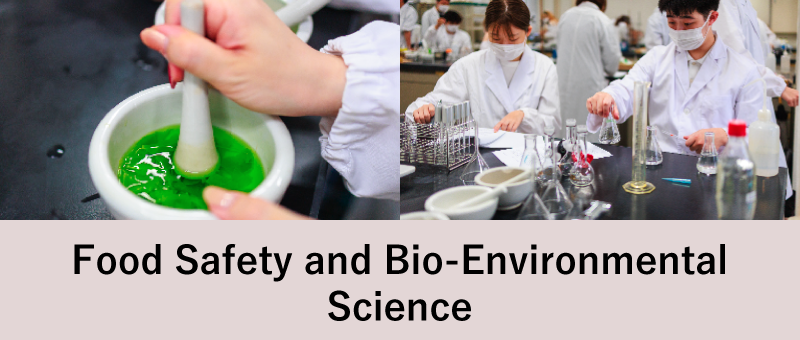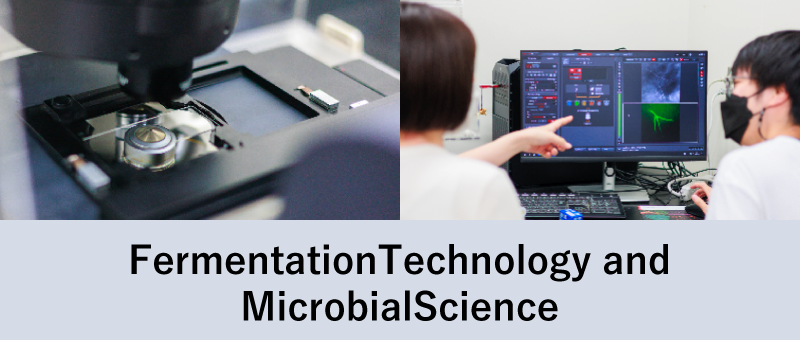course
Department of Food Science and Biotechnology / 3 courses
Department Introduction
The department has been established with outstanding curriculums and research fields built to cover a broad range of areas such as life science, food science, soil science and fermentation technology. These fields have had a significant impact on our society providing improved human and animal health as well as sustainable crops and food production. The department has three courses: (1) Food Chemistry and Biofunction Course specializes in studying the link between food components and health promotion by combining techniques such as genomics, cell cultures and animal experiments; (2) the Food Safety and Bio-Environmental Science Course specializes in studying plant growth and the stages of their production as well as soil science and post-harvest chemistry; (3) the Fermentation Technology and Microbial Science Course specializes in studying the flavor characteristics and processing technology involved in Shochu production as well as discovering and characterizing microorganisms present in the process.
Educational Goals
Our educational goals are to develop human resources who will have a significant positive impact on characteristic regional food industries such as Shochu production and food fermentation. Our graduates will have acquired knowledge of and skills in food safety, the relationship between the health and function/nutritional value of foods, and both microorganisms and utilization of other bio-functions.
Admission Policies
Admission Policies
-
A successful candidate will
- have acquired sufficient basic academic ability in chemistry and biology.
- be committed and self-motivated and eager to explore and research in the field.
-
have a keen interest in the life phenomena of plants, animals, and microorganisms, as well as food safety, food function and
fermented food.
Diploma Policies
- A student will have met the requirements of the department for graduation if they:
- possess a wide knowledge of the liberal arts, and have acquired technical knowledge in food chemistry, biofunction, food safety, bioenvironmental science, fermentation technology and microbial science.
- possess a wide knowledge of the liberal arts, and have acquired technical knowledge in food chemistry, biofunction, food safety, bioenvironmental science, fermentation technology and microbial science.
- possess the methodology and technology to deal with various issues in food chemistry, biofunction, food safety, bio-environmental science, fermentation technology and microbial science.
- possess problem solving ability in food and life science related industries.
Curriculum Policies
In order to achieve the educational goals of the department, we provide an education that allows students to acquire knowledge in the fields related to food chemistry, biofunction, food safety, bio-environmental science, fermentation technology and microbial science. We also provide education to foster their practical abilities through experiments, practical training and practice. The following is an overview.
- We provide basic specialized subjects in the first and second years, including organic chemistry, inorganic chemistry, biochemistry, food chemistry, and applied microbiology. The subjects are specialized knowledge fields and provide exposure to relevant general skills required for success in the department.
- Students are assigned to a specialized educational program from third year. We provide special subjects and subjects for experiments, practical training, and practice of each educational course based on curriculum policies in order to develop higher expertise and skills
- In the fourth year, students work on special research themes with an academic advisor. We provide subjects that guide them in their thesis writing and in preparing for the presentation on their study results.

